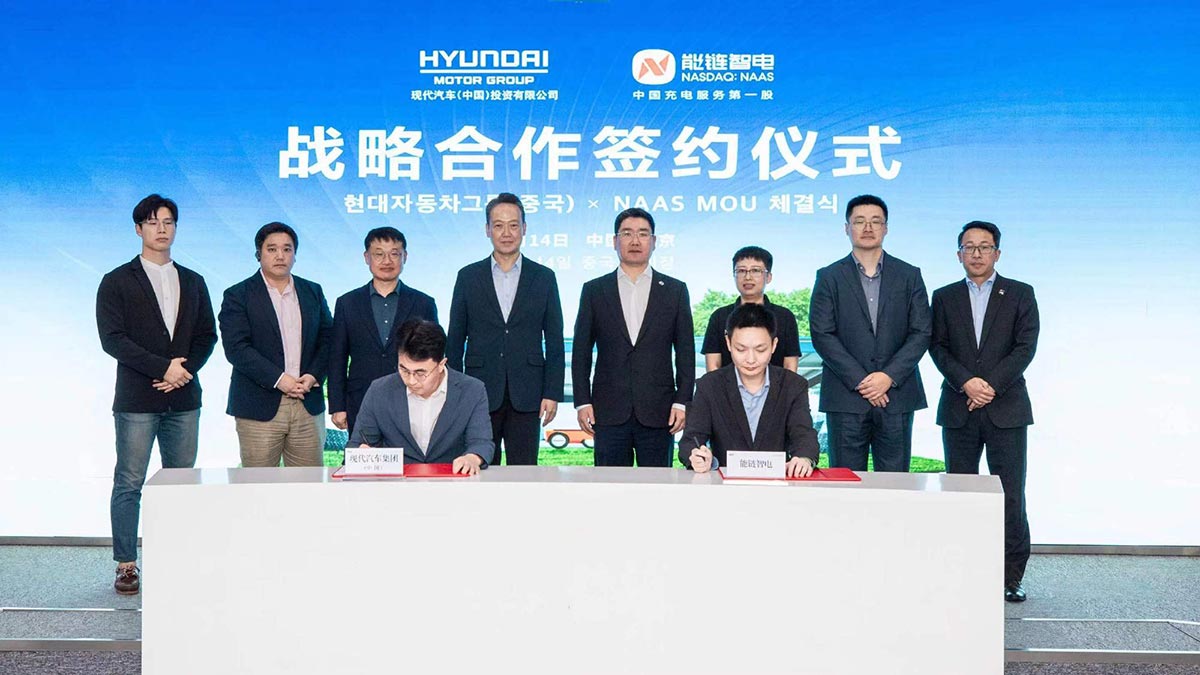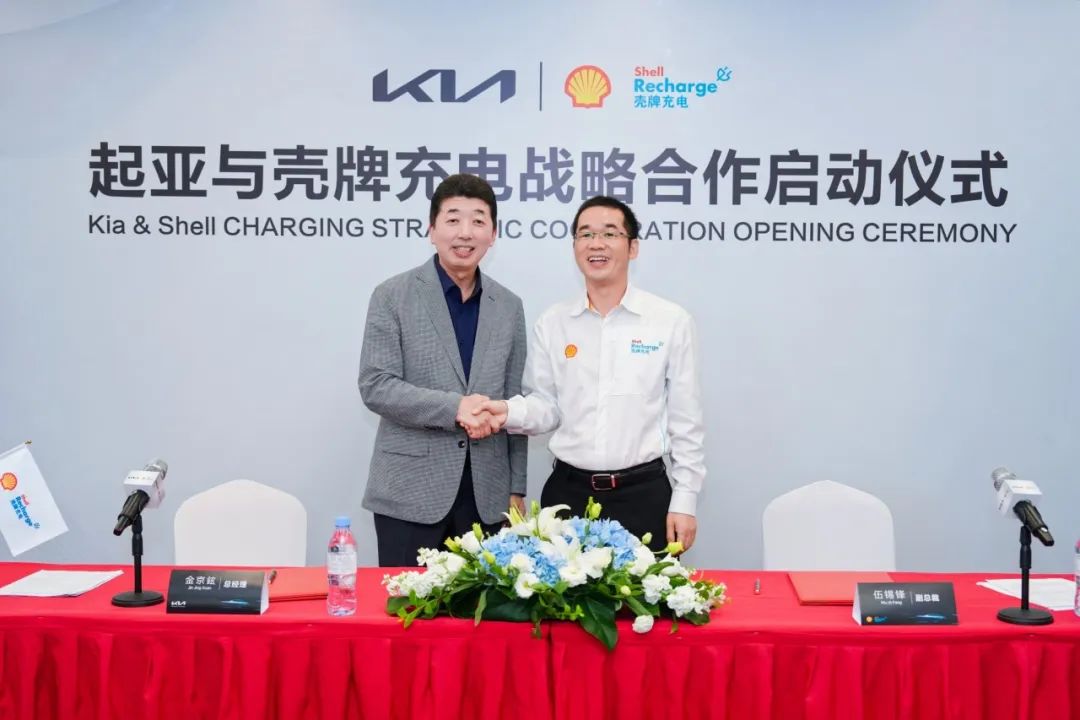Hyundai, Kia up bet on China EV market with charging facility tie-ups
Hyundai will work with China's Naas Technology on charging infrastructure, while Kia puts into operation the first supercharging station it built with Shell in China.

(Image credit: Hyundai Motor)
South Korean carmaker Hyundai Motor and its affiliate Kia Motors are starting to up their bets on China's electric vehicle (EV) market, even though they currently had little to no EV offerings here.
Hyundai announced today that it has signed a memorandum of understanding on strategic cooperation with Naas Technology, a third-party charging network operator in China, in Beijing to work together on charging infrastructure development.
The two companies will provide EV owners with services including dynamic real-time charging data, charging credit entitlements, plug-and-play charging, and home charging post installation and management, according to a Hyundai statement.
Naas will provide software and hardware support for Hyundai's EV models sold in China, and all of the latter's EV models will be connected to Naas' network, according to the statement.
The partnership includes not only getting Hyundai's EVs connected to NaaS' network, but also helping owners share their home charging piles with others, which helps achieve a more efficient use of resources while giving owners additional revenue, the statement said.
Hyundai will continue to expand into the Chinese market, the South Korean carmaker said, without providing further details.
Separately, Kia announced on August 12 that it had signed a strategic cooperation agreement with Shell to collaborate on charging infrastructure construction.

(Image credit: Kia Motors)
The first supercharging station built by Kia and Shell was put into operation on August 12 in Nanjing, Jiangsu province, and is equipped with superchargers with power up to 360 kW.
For Kia's models based on the 800 V platform, charging from 10 percent to 80 percent takes only 18 minutes, and a 100-kilometer range can be achieved in five minutes, Kia said.

Kia and Shell will build supercharging stations in more Chinese cities and it will also partner with local companies, including Kuaidian, to expand the infrastructure footprint, the automaker said.
In March, Kia unveiled its medium- to long-term electrification strategy in China, with plans to launch six pure electric vehicle models by 2027 to meet the needs of Chinese customers, Kia's statement mentioned.
Kia aims to reach 450,000 annual sales in China by 2030, with pure EV sales contributing 40 percent, or 180,000 units, it said.
Kia began accepting pre-orders for the EV6 from Chinese consumers on June 28, and the model will enter the country through imports, but will be limited to 1,000 units.
Korean brands have also largely failed to make big moves in China's fast-growing EV market, leading to a steady decline in their share of the Chinese auto market.
As of June, Korean brands' share of China's auto market stood at 1.46 percent, down from 1.74 percent in May, according to the China Passenger Car Association (CPCA).
For comparison, the share of Korean brands in China's auto market was 5.07 percent in January 2020 and 3.28 percent in January 2021, according to the China Passenger Car Association (CPCA).

Kia starts accepting pre-orders for EV6 in China, limited to 1,000 units

